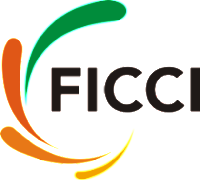India has set ambitious goals for inclusive and sustainable development, which require the mobilisation of additional low-cost, long-term capital. A new reportlaunched by FICCI and UNEP shows how the country is already introducing innovative approaches to attract private capital for green assets – and outlines a number of key steps to deepen this process in India. The report, entitled Delivering a Sustainable Financial System in India profiles the actions that have been taken to advance environmental and social factors as a core part of India’s banking, capital markets, investment and insurance sectors. It was jointly produced by FICCI and the UNEP Inquiry into the Design of a Sustainable Financial System, backed by a high-level India advisory council. The report has been released by Mr. R Gandhi, Deputy Governor, Reserve Bank of India, at a major event co-hosted by FICCI and UNEP in Mumbai at a gathering of leading financial sector figures and private sector companies.
Mr. R Gandhi highlighted that to achieve low carbon inclusive development sustainable financing is one of the most important pillars. “India has a huge opportunity to discuss policy intervention required to drive the flow of sustainable financing and to align the financial system towards a sustainable development agenda. Several goalposts including creating awareness of the financial sector, developing common definition of green finance indicators, developing green products, measuring progress and framework for assessing financial risks are critical for achieving this”, said Mr. Gandhi. Mr. Piyush Goyal, Minister for Power, Coal, New and RenewableEnergy, welcomed the report: “India has the world’s most ambitious plans for renewable energy – and this requires collaborative efforts of all stakeholders including the financial sector.
I am glad that the FICCI-UNEP report highlights solutions for the financial system to deliver these plans” Mr. Jayant Sinha, Minister of State for Finance, also gave his backing, commenting: “I am glad that the FICCI-UNEP Inquiry report for India highlights the steps that are being taken to harnessIndia’s financial system for clean energy, clean water and sustainable development as a whole. I fully support the call for a national green finance strategy to scale up these initiatives.
Mr. Achim Steiner, UNEP Executive Director, said: “2016 is set to be the year of green finance. This report shows that India is a growing source of innovation for mobilising green finance. Attracting such investment will be key to realising ambitious renewables energy targets at home as well as setting the pace with the groundbreaking International Solar Alliance. The FICCI-UNEP report will, I am certain, attract the interest of domestic and global financiers keen to back the long-term transition to a more sustainable economy.” Ms. Naina Lal Kidwai, Chair of the UNEP Inquiry India Advisory Council, Member of the UNEP Inquiry Global Advisory Council, and Past President of FICCI said: “This report captures the sustainable financing momentum that is slowly building and provides a framework for concerted action towards creation of a sustainable financing ecosystem in the country.” According to Dr. Rathin Roy, Director, NIPFP and key member of India Advisory Council “sustainability is also about financial system responding to needs of sustainable development”. The report shows that over the past decade, the pace of Indian innovation in sustainable finance has accelerated, involving both a range of voluntary market-led initiatives as well as policy actions. Recent steps include: – the launch of national voluntary guidelines for responsible financing by the Indian Banks Association – the decision by the Reserve Bank of India to includesocial infrastructure and decentralised renewable energy within the Priority Sector Lending requirements for banks – the issuance by the Securities and Exchange Board of India (SEBI) of requirements for the development of the green bond market – the approval of the Pradhan MantriFasalBimaYojana initiative to extend crop insurance The report is private sector-led and has been developed through active consultation with a wide range of stakeholders.
It concludes with a set of sixrecommendations for deepening the momentum: 1. Developing a sustainable capital markets strategy: Building on SEBI’s recent market guideline, credit enhancement, adjustment to risk weightings and fiscal incentives could help further scale up the green bond market.
2. Strengthening keystone financial institutions:the pivotal role of special financial institutions such as the Indian Renewable Energy Development Agency (IREDA)could be further developed through building products for take-out, guarantees and loan-life extension.
3. Aligning financial regulations with sustainability: Further action can be taken to make additional sustainable finance projects admissible under Priority Sector Lending requirements. In addition, renewable energy could be given its own exposure limit outside of the overall power sector.
4. Building financial sector capacities: A number of areas exist where the capacity of the financial sector needs to be further developed, notably in financial ratings, financial disclosure and ‘green credit’ decision-making including for agricultural commodities.
5. Increasing access to sustainable finance:Access to sustainable finance is still lacking in many areas, notably for the SME sector in terms of driving energy saving and adaptation to climate impacts.
6. Mobilising international financial flows:India has considerable opportunities to leverage the Green Climate Fund. ‘Green credit’from overseas can be increased through changes to external commercial borrowing rules, while foreign institutional investors can be attracted through mechanisms such as the Green Infrastructure Investment Coalition. The report comes as policymakers and financial institutions are focusing on how to mobilize the capital required to implementthe Sustainable Development Goals and the Paris Agreement on Climate Change which were agreed last year.
In addition, China as part of its presidency of the G20, has established a new Green Finance Study Group, to identify options to mobilise private capital for green investment. The BRICS has clean energy financing on its agenda and the BRICS Bank, the New Development Bank (NDB) has recently allocated USD 250 million to the Canara Bank in India for renewable energy projects as part of its first set of loans.





